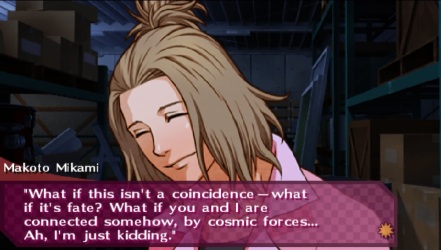“Freedom was no boon.” – Varania, Dragon Age II
“I cannot imagine how we forgive ourselves for all the things we didn’t say until it was too late. But how else do you tell if something is hot but to touch it?” – Doc Luben, “14 Lines From Love Letters Or Suicide Notes”
*
Perhaps this is an overly dramatic way to introduce a blog post about a video game, but Dragon Age II is the kind of ambitious beast that deserves it. It’s dark and experimental and messy and very very flawed, but it just got to me in a way that I don’t think I’ve actually experienced in the medium before. As this excellent piece by Alex at While Not Finished argues, the whole game is marked by a feeling of powerlessness almost unheard of in a format which usually tries to give the player as much control as possible. Most of the major plot beats are immutable: your sibling always leaves the party after the first act, the qunari always stage an uprising, the mages and templars always wind up in a climactic battle for the city, and all you can do is try to avert the worst-case scenario. And in such a bleak setting, there’s only one way to wind up a victor:
[Another blogger] suggests that the real win condition of DA2 is to get through it without having any of your companions turn on you (which, if you have Sebastian, is impossible unless you side with the Templars), and she’s right. […] So most of the choices in DA2 are more subtle than an either-or decision at the end of a long dungeon. The most important choices in DA2 are about what Hawke does have control over: how she relates to and how she treats her companions. Does she make an effort to forge a relationship with these people? Does she earn their respect? Does she support their goals or does she thwart them? Does she help them with their problems or merely meddle in their affairs? Friend or rival? Building a relationship with these people is the most important thing […] If you want what passes for a good ending in DA2, to “win”, you need to get to know the characters. DA2 is a character drama: it is nothing without them.
By and large, I do agree with the argument that the game is about Hawke’s lack of power over the world at large, and it nails what I liked about Dragon Age II. But I differ on two key aspects, and they’re both crucial ones. One, although I do agree with the idea that it’s about making the best of the little you get, I don’t think you can “win” the game as such (and, as the credits rolled, I certainly didn’t feel like I was walking away a victor). Instead I’d argue that it doesn’t even really have a win condition, because it’s not supposed to be a game that you win or lose in the classic sense as much as it is a story you can impact. And two, the role of agency is far more complex and problematic than presented here. The game’s central theme is that of freedom and security, which permeates its whole tone; where it really shines is how this comes across (and is problematised) in your relationships with your companions, and the way you can skew them towards friendship or rivalry. It’s a brutal take on the typical affection system: agreeing with a character in order to try and win them over is synonymous with granting them agency over safety, and that’s not always the best or most satisfying way to go. The freedom given to the player is at least as problematic as the freedom given to any of Hawke’s companions, and it certainly isn’t an easy thing to bear. This game is not a power fantasy, which is why it sits somewhat oddly against the genre as a whole, but that defiance of convention is exactly why it’s so good.
Here’s the long and the short of it: Dragon Age II presented me with the greatest sense of personal failure I have ever experienced in a video game, and the real tragedy was that it was completely and utterly the cumulative product of my conscious decisions.
(Colossal spoilers for the whole game under the cut, of course.)
Continue reading →
